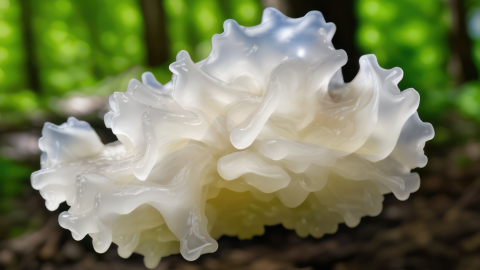The Benefits of Glycine:
Glycine is a simple yet powerful amino acid that plays a pivotal role in numerous biological processes within the human body. Although it’s small, glycine is essential to maintaining health and wellness, offering benefits that extend beyond what many people realize. As one of the 20 amino acids used by the body to build proteins, glycine may not always be in the spotlight, but it certainly deserves more attention. From supporting joint health to improving sleep quality, this multifaceted molecule offers a range of benefits.
1. Improves Sleep Quality
One of the most well-known benefits of glycine is its ability to improve sleep. Glycine functions as an inhibitory neurotransmitter in the brain, helping to calm the nervous system and prepare the body for rest. Studies show that taking glycine before bed can promote deeper, more restorative sleep, and people who consume glycine tend to fall asleep faster and wake up fewer times during the night. Unlike some sleep aids, glycine doesn’t leave users feeling groggy the next day, making it a much more appealing, natural alternative for people struggling with insomnia.
2. Supports Cognitive Function and Mental Health
glycine also plays a role in cognitive health. It is a neurotransmitter that facilitates communication between nerve cells, helping with memory and cognitive processing. Some research suggests that glycine can enhance cognitive performance, especially when it comes to tasks that require sustained attention and learning. Not only that, glycine’s calming effects may help reduce symptoms of anxiety and stress, improving overall mental well-being. Its role in regulating glutamate levels, a neurotransmitter that can be harmful in excess, further highlights its importance in brain health.
3. Promotes Muscle Growth and Recovery
As an amino acid, glycine is critical for protein synthesis, making it essential for muscle growth and recovery. Whether you’re an athlete looking to build muscle or someone recovering from an injury, glycine plays a crucial role in repairing damaged tissues and maintaining lean muscle mass. It also supports the production of creatine, which helps muscles produce energy during high-intensity exercise. Because glycine helps reduce muscle breakdown and enhances recovery, it is especially beneficial for athletes or anyone engaged in regular physical activity.
4. Boosts Collagen Production
Collagen, the most abundant protein in the body, relies heavily on glycine for its synthesis. Collagen is critical for the health of skin, joints, tendons, and bones. As we age, our natural collagen production decreases, leading to wrinkles, joint pain, and decreased elasticity of the skin. Supplementing with glycine can help support the body’s collagen levels, promoting healthier skin and stronger joints. This makes glycine a valuable addition to anti-aging routines and for people dealing with joint stiffness or pain due to arthritis.
5. Supports Liver and Digestive Health
Glycine plays an important role in detoxification processes in the liver, helping to remove toxins from the body. It is involved in the production of glutathione, a potent antioxidant that protects cells from oxidative stress and supports liver function. Glycine can also support digestive health by protecting the lining of the gut, reducing inflammation, and promoting healthy digestion.
6. May Improve Heart Health
Emerging research suggests that glycine may contribute to cardiovascular health. It helps regulate the production of nitric oxide, which dilates blood vessels and improves circulation. This, in turn, can reduce blood pressure and support overall heart function. Glycine’s ability to reduce inflammation and oxidative stress may also contribute to a healthier cardiovascular system.
Conclusion
Glycine may not be the most well-known amino acid, but it is one of the most versatile and beneficial. From improving sleep quality and cognitive function to promoting muscle growth and supporting liver health, glycine plays a crucial role in maintaining overall well-being. Whether through dietary sources like meat, fish, and bone broth, or through supplements, incorporating glycine into your routine can offer significant health benefits for both the mind and body.




